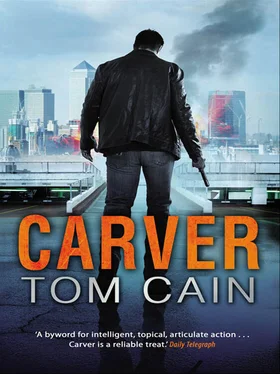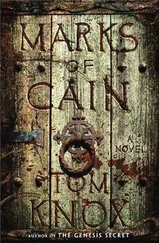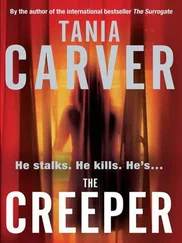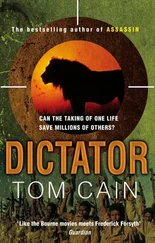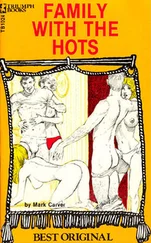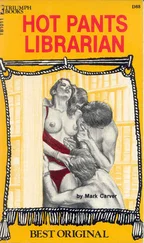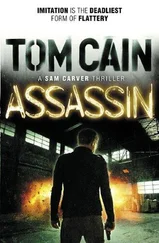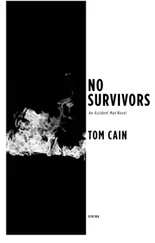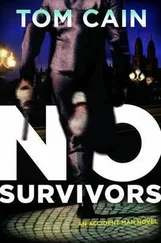Tom Cain - Carver
Здесь есть возможность читать онлайн «Tom Cain - Carver» весь текст электронной книги совершенно бесплатно (целиком полную версию без сокращений). В некоторых случаях можно слушать аудио, скачать через торрент в формате fb2 и присутствует краткое содержание. Жанр: Триллер, на английском языке. Описание произведения, (предисловие) а так же отзывы посетителей доступны на портале библиотеки ЛибКат.
- Название:Carver
- Автор:
- Жанр:
- Год:неизвестен
- ISBN:нет данных
- Рейтинг книги:4 / 5. Голосов: 1
-
Избранное:Добавить в избранное
- Отзывы:
-
Ваша оценка:
- 80
- 1
- 2
- 3
- 4
- 5
Carver: краткое содержание, описание и аннотация
Предлагаем к чтению аннотацию, описание, краткое содержание или предисловие (зависит от того, что написал сам автор книги «Carver»). Если вы не нашли необходимую информацию о книге — напишите в комментариях, мы постараемся отыскать её.
Carver — читать онлайн бесплатно полную книгу (весь текст) целиком
Ниже представлен текст книги, разбитый по страницам. Система сохранения места последней прочитанной страницы, позволяет с удобством читать онлайн бесплатно книгу «Carver», без необходимости каждый раз заново искать на чём Вы остановились. Поставьте закладку, и сможете в любой момент перейти на страницу, на которой закончили чтение.
Интервал:
Закладка:
‘That wouldn’t make him too popular.’
‘Not if he did it more than once, certainly,’ Koenig agreed. ‘A bank is like a casino. The management do not mind the occasional jackpot. That encourages the other gamblers. But if someone creates a system for winning, and gets the jackpot again and again… well, then they are asked to leave the casino.’
‘Yes… and they aren’t always asked politely,’ said Carver. ‘So these swaps, are they the only way Zorn makes his money?’
‘I had no idea you were taking such an interest in finance, Sam. May I ask why you are so fascinated by Malachi Zorn in particular?’
‘His name came up in conversation.’
Koenig gave Carver the chance to say more, accepted that no further information would be forthcoming, and then smiled as he said, ‘You are very discreet. You would have made an excellent Swiss banker! OK… get me another martini and I will try to explain.’
Carver bought a second round of drinks and settled back for Koenig’s tutorial.
‘So, Zorn… Well, I imagine he’s using a great many different financial vehicles. His aim, though, will always be to leverage his money to the greatest possible extent, so that he gets the maximum possible return.’
‘The impression I got was that he bets on failure most of the time,’ Carver said.
‘In that case, another way to go is “put” options. Basically, that gives him the right to sell a quantity of a stock or a bond at a particular price, on or before a particular date. So, imagine a company that is doing well. Its shares cost ten dollars, and the price is very solid, very steady… But for some reason, Zorn thinks to himself, “These shares are overvalued, they must crash. Soon they will be worth much less.” So he buys the option to sell these shares at eight dollars. Financial institutions will sell Zorn these options, because they see no reason for this price to go down. If they are right, the price holds steady, and Zorn loses all the money he has spent buying the options. But if the share crashes — say to three dollars a share — Zorn exercises his options, sells at eight dollars, and pockets five dollars a share profit.’
‘Which the bank has to pay for?’
‘Effectively, yes.’
‘So what is Zorn paying for these options?’
‘Ah, Sam, that is a very complicated question… But it can be reduced to a pair of very simple elements: time and risk. The greater these are, the more an option costs. Imagine, for example, that you want to buy “put” options on the price of a house, betting that its value will decrease. A six-month option on a house made of straw will cost you much more than a week-long option on a house made of brick.’
‘Unless you know that the big bad wolf has a wrecking ball.’
‘Precisely… in any market, exclusive information is the most valuable commodity of all.’
Carver took a long drink of his beer, using the time to get his head around what he had just learned. ‘You know, what I really don’t get about any of this,’ he said, putting his drink back down on the table, ‘is what’s the point of it all?’
‘It’s business. It makes money. What other point does it need?’
‘But it doesn’t make money, does it?’ Carver pointed out. ‘You said it yourself. Every time there’s a winner on a trade, someone else loses the exact same amount. So nothing new is created. Oh, no… wait
… Something tells me that if a trader does a deal to sell one of those swaps, or “put” options, he puts that down as new business and he gets a slice of that business as his bonus. Am I right?’
‘Sure,’ Koenig agreed. ‘Bankers’ pay is based on a percentage of the profits they generate, so yes, in theory…’
Carver was feeling the excitement that comes when you suddenly get an insight into something new. ‘OK… so then a couple of years go by and — uh-oh — turns out that swap was a bad idea. Lehman’s go bust. Now that swap Zorn bought has cost millions, even billions… does the guy who sold the swap, or the option or whatever it was, pay for that loss? No, of course he bloody doesn’t! He probably doesn’t even work at the same place any more. But the bank certainly has to pay.’
‘Of course, it comes off the balance sheet.’
‘Exactly! So the bank’s profits fall, or maybe it makes a loss. Either way its shares lose value, so the shareholders lose money… and those shareholders are mostly pension funds who invest the money for ordinary people who don’t have a clue about any of this. So now those pensions are worth less… and basically what’s happened is that poor people have lost money so that rich idiots can gamble with their cash and never have to take any of the losses themselves.’ Carver shook his head in surprise. ‘Razzaq was right, after all…’
‘I’m sorry, who is Razzaq?’
‘Someone I was talking to. He said Malachi Zorn’s deals ultimately made ordinary people poorer. And he was right. He just forgot to mention that all those other bastards’ deals have exactly the same effect.’
Koenig laughed nervously, trying to defuse the intensity in the air. ‘Calm down, Sam, really… I have never seen you like this before. My God, it’s a good thing you don’t have a gun on you right now. This bar is full of investment bankers. You might try to shoot someone!’
‘Yes,’ said Carver. ‘I just might.’
Custer County, Nebraska: six months earlier
Seen from the air, the valley that stretches to the north-west of the town of Broken Bow looks like the remains of tiles on a crumbling wall. The mottled, dusty-brown and olive-green earth is dotted with perfectly square fields, in which sit circular splashes of emerald caused by the rotating water sprayers that irrigate the cultivated land thereabouts. The dusty, dead-straight roads that bisect the flat valley floor even criss-cross one another like grouting.
Of course, that’s only in the summertime, when the corn is growing. In the middle of winter, the rock-hard earth is as dark as bitter chocolate, dusted with sugar-white snow. Jed Rogers grew corn on land that ran along County Route 92, land that his father and grandfather had farmed before him. He had been a local celebrity for the best part of twenty-five years, ever since his final two years at high school, when he’d quarterbacked the Broken Bow Indians football team and been voted Homecoming King. Maryjane Rogers had been his pretty blonde queen. The eldest of their three children, Jed Jnr, was only in his sophomore year at Broken Bow High, but already folks were saying he’d inherited all his daddy’s talent and more besides. And his two little sisters were just as cute and pretty as their mom. The Rogerses were a popular family, good people. They worshipped at the First Presbyterian Church, and never missed a Sunday service. They contributed generously to local charities, and Maryjane was the kind of PTA stalwart who could always be counted on to help out at school events or bake a tray of cookies at a moment’s notice.
Custer County, like much of rural Nebraska, has less than half the population it did a century ago. There are barely eleven thousand souls spread across its two and a half thousand square miles. In a place like Broken Bow, people know one another and lend a helping hand when they can. So when Jed Rogers was found in his barn, with the back of his head blown off by the shotgun he’d placed in his mouth, his death was not officially noted as a suicide, but as an accident. No one wanted Maryjane and the kids to lose the insurance money. And it wasn’t as if the insurance company had really been cheated or anything. Jed Rogers was suffering from Huntington’s disease. There was no hope of a cure. All he’d done was spare his family the pain and expense of caring for him as his mind slowly decayed into dementia and his fine, strong body fell apart.
Читать дальшеИнтервал:
Закладка:
Похожие книги на «Carver»
Представляем Вашему вниманию похожие книги на «Carver» списком для выбора. Мы отобрали схожую по названию и смыслу литературу в надежде предоставить читателям больше вариантов отыскать новые, интересные, ещё непрочитанные произведения.
Обсуждение, отзывы о книге «Carver» и просто собственные мнения читателей. Оставьте ваши комментарии, напишите, что Вы думаете о произведении, его смысле или главных героях. Укажите что конкретно понравилось, а что нет, и почему Вы так считаете.
